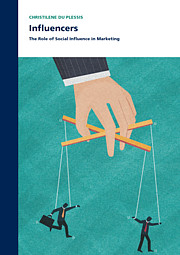Influencers: The Role of Social Influence in Marketing Defended on Thursday, 14 December 2017
This dissertation challenges common methodological conventions used to study social influence in consumer behavior and social psychology. The first part of this dissertation moves beyond the study of social influence in a single dyadic relationship, and investigates how one dyadic relationship influences another. Here, influence attempts by one agent (e.g., a company) on another (e.g., a review writer) are shown to not only influence the cognitions of the agent being influenced, but also their ability to influence others (e.g., review readers). The second part investigates how the widespread use of 2-cell instead of 3-cell experimental designs in social power research limits understanding of both the powerful and powerless. The pervasive practice of contrasting high power to either a low power or a control condition is found to weaken construct validity and inflate the size of effects attributed to high power. In contrast, using 3-cell experimental designs facilitate theoretical advancement by enabling the identification of curvilinear effects. The findings in this dissertation highlight the need for scholars to question common methodological conventions used to study social influence. Overall, this research suggests that doing so may increase methodological rigor, confidence in observed effects, and may lead to novel theoretical insights.
Keywords
Social influence, online reviews, reviewer incentivization, attitude uncertainty, social power, powerlessness













